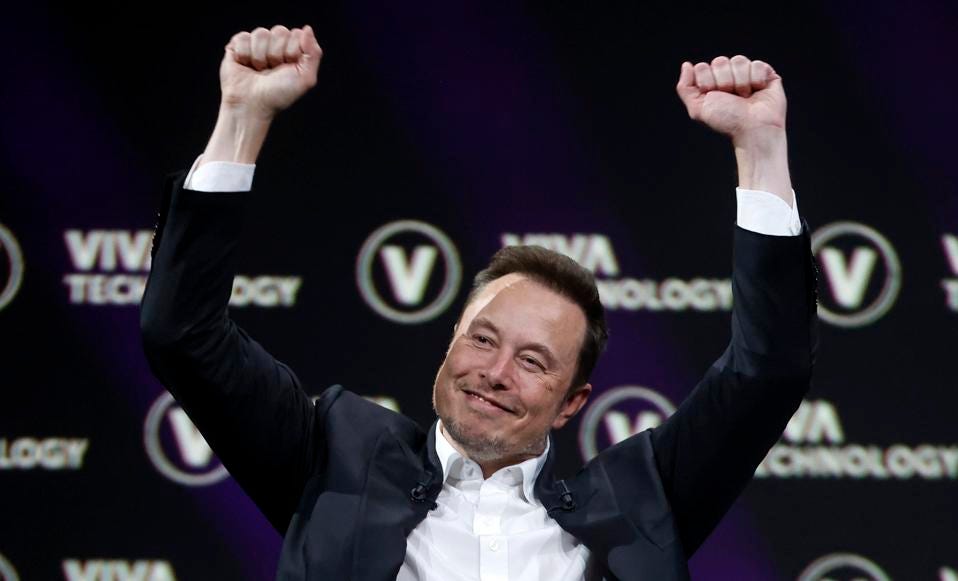dark earth map with glowing details of city and human population density areas. wiew of europa. suitable for technology, future and science themes. 3d illustration GETTY
Looking ahead to try to predict what might happen in the energy space over a span of a full year is always a challenging task. The world of energy has always been constantly changing and hard to foresee, and there is no reason to expect 2024 to be materially different. Rising concerns over climate change, trillions of dollars in government programs designed to force markets in competing directions and looming elections in the US, Great Britain and other countries promise to render 2024 one of the least predictable years in history where energy is concerned.
So, having laid out my excuses for any misses up front, below are the 9 consequential energy predictions I’m willing to make for 2024. As always, I will commit to review these in late December and take my lumps where required.
Non-Tesla automakers will be pressured by investors to scale back EV plans further.
There is no question that consumer demand remains strong for Elon Musk’s Tesla, as evidenced by the company’s strong 2023 results. The question is whether there is enough demand to sustain any other electric vehicle maker in the United States until it can reach real profitability. See Rivian and Fisker as examples, along with the big losses sustained by the EV divisions at Ford and GM that led both companies to scale back major EV investment commitments during the 4th quarter of 2023.
PARIS, FRANCE - JUNE 16: Chief Executive Officer of SpaceX and Tesla and owner of Twitter, Elon Musk gestures as he attends the Viva Technology conference. Getty Images
Tesla’s decade-long head start on other domestic EV makers enabled it to become more advanced in establishing its own supply chains and charging infrastructure, lending buyers a higher degree of confidence they will be less impacted by lingering concerns over fear factors like range anxiety, overstated performance metrics and inadequate infrastructure.
Thus far, traditional carmakers like Ford and GM have been able to placate investors by more than offsetting losses by their EV divisions with spectacular profitability in their traditional gas and diesel-powered cars and trucks. But that could be a strategy with a limited shelf-life where both economic conditions and investors are concerned. Add to that a growing percentage of car dealers starting to rebel at investment demands for EV marketing and training, and lots filling up with unsold units, and 2024 promises to be a controversial year for the American EV industry, with Tesla remaining an outlier.
Keep reading with a 7-day free trial
Subscribe to Energy Transition Absurdities to keep reading this post and get 7 days of free access to the full post archives.





